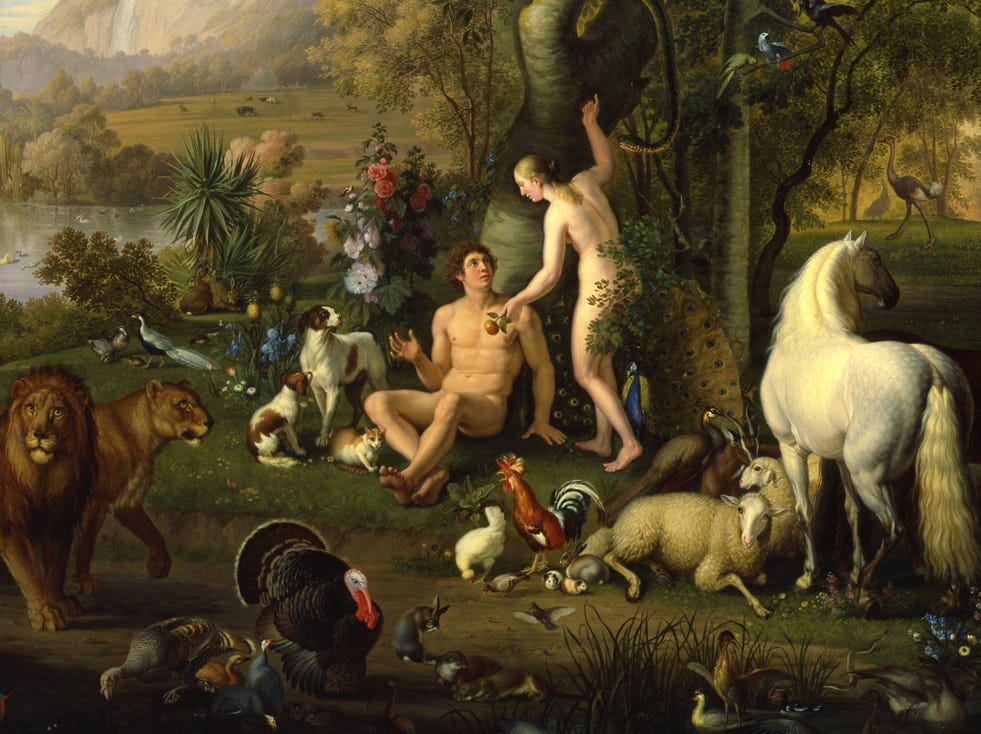☕ saturday mornings - December 10, 2022
serenity, critical love & your moral compass
Happy Saturday!
I hope you’re having a great start to your weekend 🙂
What I’ve been up to:
Three exams down, one more to go.
I've been thinking a lot about the business model of podcasts. Enthusiasts believe we're in the very early innings of podcasts as they will prove to be a bigger technological revolution than the Gutenberg printing press. If you have any thoughts on the future of podcasts, I'd love to chat!
Here's a recap of the most interesting things I've explored this week.
✍️ Quote I’m pondering:
Anthony de Mello, spiritual teacher, on peace:
‘What is the secret of your serenity?’
Said the Master, ‘Wholehearted cooperation with the inevitable.’
📚 Book passage I loved:
"Coach Graham rode you pretty hard, didn't he?" he said.
I could barely muster a "yeah."
"That's a good thing," the assistant told me. "When you're screwing up and nobody says anything to you anymore, that means they've given up on you.”
... When you see yourself doing something badly and nobody’s bothering to tell you anymore, that’s a bad place to be. You may not want to hear it, but your critics are often the ones telling you they still love you and care about you, and want to make you better.
― The Last Lecture by Randy Pausch
💡 Idea from me: True North Moral Compass
If you study history, you can't help but come away with the idea that evil exists.
In the last few hundred years, the blink of an eye from a historical perspective, we've seen genocide and slavery, wars and destruction on an unimaginable scale.
I've thought about the pervasiveness of evil in these dark times. About the normal civilians who became twisted by malevolence into abusing others.
I've also read beautiful stories of men and women who risked their lives to do the right thing, despite their neighbors feigning ignorance and avoiding action.
I think about what it means to be a hero in times of evil. To reverse the decline of civilization into chaos.
I think about the families who sheltered Jewish people in 1930's Germany, or those who helped slaves escape the American South by forming The Underground Railroad.
During World War 2, I read about prisoners in concentration camps who would walk through the huts comforting others and giving away their last piece of bread. I read about a German commander at a camp who paid large sums of money, from his own pocket, to purchase medicine for his prisoners from a nearby town. I read about Sophie Magdalena Scholl, a 21-year old university student in Munich who was executed, along with her two brothers, for printing and distributing pamphlets denouncing the dictatorship of evil in Germany and encouraging people to do something about it.
I am astonished by these people — their bravery and commitment to doing what is right, solely because it is right.
I can't help but think: What would I do in those circumstances?
I'd like to say I'd do the right thing. But, statistically, history says otherwise. The reality is most people were bystanders. Most people did nothing.
Viktor Frankl, returning to Vienna after 5 years in concentration camps, writes: "When, on his return, a man found that in many places he was met only with a shrug of the shoulders and with hackneyed phrases... He heard the same phrases nearly everywhere—"We did not know about it," and "We, too, have suffered"."
Acting morally in these times requires a mental toughness I can't even comprehend. I'm reminded of C.S. Lewis' idea that "courage is not simply one of the virtues but the form of every virtue at the testing point."
It's forced me to pause and acknowledge how much stronger I need to be if I want to have a role in this world that creates positive change. How much I need to grow, and calibrate my moral compass, to do the right thing irrespective of the masses, even in the face of danger. To be someone who pursues benevolence at whatever cost.
I can't pretend to have the answers. But, heeding Rainer Maria Rilke's advice, I am trying to live the questions. "Perhaps," Rilke writes, "you will then gradually, without noticing it, live along some distant day into the answer."
I’m not sure I’m that person today. But I am sure I want to be.
❓ Question for You:
A question from Tony Robbins on your personal stories:
We all tell ourselves stories. Does your story empower you or hold you back?
📸 Photo of the week:
From my all-time favourite comic, Calvin and Hobbes.
If you want to subscribe, click the button below!
If you have ideas or feedback or just want to be friends, please reach out 😊
Reply to this email, leave a comment, or find me on Twitter @tommy_dixon_
Have an excellent weekend.
Much love to you and yours,
Tommy





Calvin & hobbes is the absolute best
"C.S. Lewis' idea that "courage is not simply one of the virtues but the form of every virtue at the testing point.""
Thank you for that. I'd not heard it before. Like a lot of things that feel revelatory, courage is something on my mind lately. Courage as not something that you conjure when needed, but as the result of living up to your values more and more often.